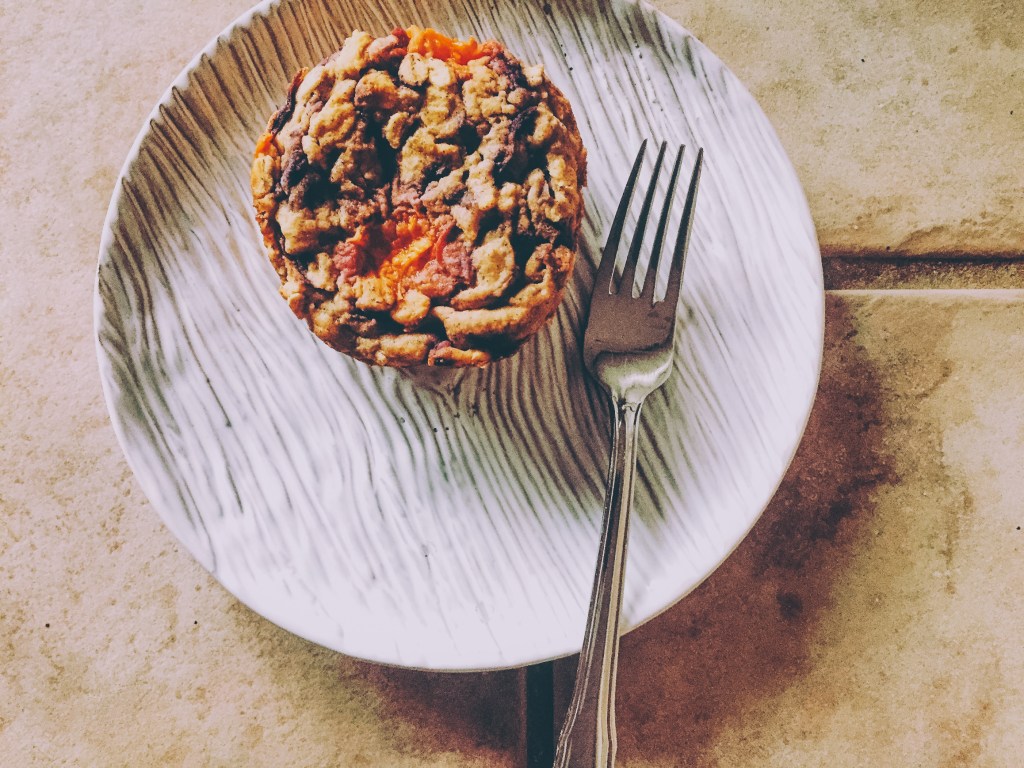
This is the time of year when it’s common to think about ways to improve our health. And if you are one of the majority that has a long and unsavory history with your relationship to food and/or your body, you just might be thinking more about intuitive eating this year. Or perhaps you assume you’re already eating intuitively by eating what you want when you want to.
For many of us with a history of rigid food beliefs, chronic dieting, or disordered eating behaviors, that step of tuning into and actually honoring our hunger, cravings, and food desires is a BIG start — and leads to less feast and famine mentality, peace around food and less guilt in indulging once in a while. It also can mean finally stepping away from the chronic calorie and macro tracking which tend to fuel the rigid behaviors, and dare I say it, throwing out your scale or having your partner/roommate hide it far away where you just might forget about it for a while – I mean several months, or longer.
One thing I noticed as I became less of a disordered eater and more of an athlete focused on feeling good in my body and recovering from workouts, is that I naturally began honoring my hunger more and focusing less on what my body looked like or what I thought I should be eating. It’s like I opened the fridge, took a look around, and then closed it, thinking nope none of this, a peanut butter sandwich sounds good right now — as well as a couple big handfuls (completely unmeasured and probably ate more than that) of tortilla chips.
And truthfully, I ate two pieces of pie every day for nearly a week around Thanksgiving this year on top of my “normal eating” meals and semi-reduced athletic activity, and I didn’t think about my weight or the scale or calorie tracking once. I also haven’t thought about pie at all in the weeks since then. But is that intuitive eating?
As a nutritionist, I always want the best for every person I work with, and quite honestly, everyone else too. And I always fall back on individualized support. Because for many people that have a long history of not tuning in to their body and hunger signals, the eat what I want when I want it, and maybe that means two slices of pie a day approach is okay with me. It’s a start. But it’s probably more appropriate to call it the honoring your cravings and letting go of guilt and diet-culture beliefs about food approach, rather than truly eating intuitively. I’ll put my pie-eating habits at Thanksgiving into this category.
What is Intuitive Eating?
I think the best way to share what intuitive eating is is to go back to just basic intuition. We often talk about intuition when we say we have a gut feeling, or “we just know something” and logically, it may not always make a ton of sense. We make these gut-feeling decisions when we choose a job that pushes us out of our comfort zone, or we make a big move, or choose a medical procedure (or opt not to), when it’s not the most logical thing to do.
But how do we “just know” that a food is right for us or is what we need? One of the best ways to begin to learn this is to pay attention to how you feel afterwards. Intuitive eating can best be described as paying attention to and honoring what your body is telling you it wants and needs, rather than what your mind wants or craves.
Signs that Your Body Didn’t Approve the Meal
When you’re done eating and in the three to five hours after, how do feel? How is your energy? Did you get really tired, or alternatively, super stimulated? Did you start to get some of those not-so-optimal digestive symptoms, like bloating, gas, pain, gurgling, reflux, heartburn, nausea, feeling just plain heavy and lethargic, etc.? Were you running to the bathroom or didn’t have a bowel movement today (also known as constipation)? How was your mood? Were you wired, anxious, scattered, fearful or angry, frustrated, short-tempered and snappy? All of those are influenced by what we’re eating and how we’re eating and whether we’re digesting and assimilating foods and nutrients optimally.
If what sounds good is a giant bowl of popcorn for a snack or dessert every day, and then we’re mentally scattered, gassy, constipated, and anxious afterward or the next day, then maybe our craving for popcorn is being influenced by our imbalance, rather than our intuition.
Another example is a desire for particularly salty or spicy foods with lots of onion and garlic. If those are more of what the mind is craving versus what the body is truly desiring, then we might be particularly short-tempered, easily frustrated, have acne or skin rashes, heartburn or nausea, and have loose stools or diarrhea.
One more example goes back to my pie, and in previous life phases, daily ice cream routine. Frequently eating heavy, cold foods often tends to make us feel heavy, lethargic, have sluggish or incomplete bowel movements, feel depressed or have a low mood, promote inflammation, and develop a lot of extra mucus in our sinuses and elsewhere. Many years ago now, I ate ice cream basically daily, and during a certain period, multiple times a day. During the multiple times per day phase, it probably began as my closest interpretation of my intuition–because I was way too light and undernourished, and my brain just simply needed kcals. But after some time, my weight had definitely stabilized and swung back in the direction of my heaviest, and I began to be extremely anxious all the time, craved more sugar (of course), and finally had a major candida outbreak. Candida is a yeast that feeds on sugar! My cravings were coming from the not-so-beneficial organisms in my GI tract – not my intuition.

So it can be a little difficult to graduate to true intuitive eating once we’ve mastered honoring our hunger and shoving off the influences of dieting culture, and are no longer just following cravings and feel like ice cream every day, popcorn and peanut butter on repeat, or grazing all day instead of three solid meals.
Why is all of this even more important? Much of what I write about here is in the realm of digestive health – and/or eating appropriately to fuel our athletic lifestyles. And when I work with individuals, I often encourage them to honor their intuition. But sometimes we need a little more help in deciphering, are we eating enough despite what we think is intuitive eating?, Is that food that I’m craving helping or harming my return to balanced digestion?, Is my daily pie or ice cream habit giving me the calories I need, but encouraging future imbalanced health down the road, and/or already showing signs of imbalance? And admittedly, the more symptoms of imbalanced health that we have (such as some of the above), the more challenging it becomes to self-determine cravings that fuel the imbalance versus eating intuitively that returns us to true, optimal health.
A good way to start to tune in is to keep a little journal of how you felt in the hours after meals for a few days, and see if you have more of the sub-optimal symptoms and moods than you were aware of before. And if you suspect you’re more in the realm of honoring cravings right now and want support in starting to eat more intuitively, feel free to reach out and chat with me in a nutrition consult.

4 thoughts on “What exactly is intuitive eating? Cravings vs. intuition”